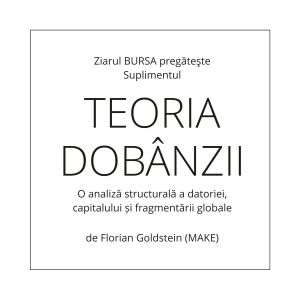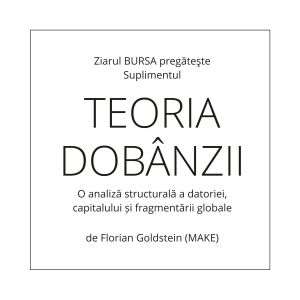The European Commission criticizes the large number of emergency ordinances adopted by the Ciolacu government, stating that the legislation through the GEO is a source of concern for companies, especially when they look at the implementation of important reforms, according to the report on the rule of law, published yesterday by the Executive community. This year alone, by July 12, the government had passed 97 emergency ordinances.
The Commission believes that the use of emergency ordinances has a negative effect on decision-making transparency, a fact noted both in last year's report on the rule of law and in the GRECO report, which made several recommendations to normalize the situation. Officials in Brussels remind that in September 2022, in order to fulfill a milestone of the National Recovery and Resilience Plan, the Government adopted a new methodology regarding the development and approval of emergency ordinances, but there is no evaluation regarding the implementation of this methodology and of its impact on the activity of the central authorities in Bucharest.
The European Commission also criticizes the activity of the General Secretariat of the Government due to the late publication of draft normative acts and decisions, a delay that cancels the minimum time for public consultation - 10 days - and the contribution of the social partners regarding the improvement of the respective legislative projects.
Therefore, regarding the decision-making transparency of the central authorities, the European Commission considers that no progress has been made regarding the implementation of the recommendation from the 2023 Report on the rule of law in our country.
Another area criticized by officials from Brussels in the report on the rule of law is represented by public procurement, they consider this sector to be one with a high risk of corruption. The European Commission recalls that this was also signaled by the Flash Eurobarometer for business, which shows that 35% of entrepreneurs in Romania believe that due to existing corruption in public institutions, they have not won any public procurement contract in the last three years. Although the number of integrity warnings issued by the electronic system for the prevention of conflicts of interest in public procurement has remained stable over the past four years, the report on the rule of law in our country shows that in October 2023 a potential conflict of interest was identified within a public procurement procedure worth 1.4 billion euros. That is why the European Commission believes that the authorities in Bucharest must identify by the end of 2024 which are the areas in which public procurement procedures are most prone to fraud through acts of corruption.
The cited document also shows that DIICOT reported that 13% of the criminal groups investigated in 2023 switched to corrupting public officials to hide the crimes committed. The percentage is higher than in 2022, when only 11% of organized crime groups resorted to acts of corruption, but lower than in 2021, when we have a percentage of 15%.
However, the Commission is satisfied with the fight against corruption, but also with the implementation of the Anti-Corruption Strategy 2021-2025, even if in 2023 no meeting of the working group on anti-corruption in the national education sector was organized, while the working group in the health sector met four times last year.
The European Commission appreciates that the number of anti-corruption prosecutors remains stable and that the DNA maintains a positive track record in fighting corruption, including in high-level corruption cases. The report notes, however, that one problem in the fight against corruption has been the delayed legislative response to the statute of limitations, which has continued to lead to many corruption cases being closed and convictions overturned. Thus, last year the anti-corruption prosecutors had to close, due to the intervention of the prescription of criminal liability, 575 corruption files in which 297 people were prosecuted. Also last year, due to the statute of limitations on criminal liability, 364 defendants in corruption cases were definitively acquitted by the criminal courts.
The community executive is also dissatisfied with the fact that the recommendations regarding lobbying rules for members of Parliament have not yet been implemented, although according to a survey carried out in the Senate it emerged that 8 out of 12 senators believe that lobbying activity should be regulated and that there should be clear rules regarding gifts, hospitality, favors and other benefits received by MPs. At the same time, the Commission requests the adoption of legislation to improve the transparency of the financing of political parties. The normative act developed by AEP was approved by the Senate, but remained blocked in the Deputy's Chamber, from September 2023 until now. The draft law aims to improve the transparency of the financing of political parties and the application of related rules. Civil society representatives believe that the total budget for public financing of political parties should be reduced, because in 2024 it is 63 million euros, a third more than in 2023, favoring parliamentary parties. The NGOs also demand the limitation of the amounts that the parties can use in the pre-election and election campaigns.
In light of the above, the European Commission requests the central authorities in Bucharest to implement the recommendations of the Venice Commission regarding justice laws, to ensure adequate human resources for the justice system, to take measures to ensure the investigation and prosecution of corruption crimes , to introduce lobbying rules for members of Parliament, but to ensure adequate decision-making transparency by consulting all social parties in the legislative process.







































